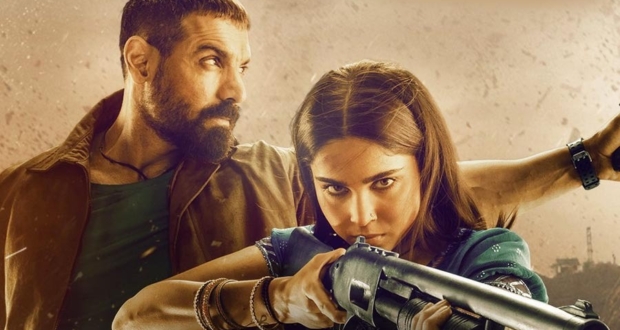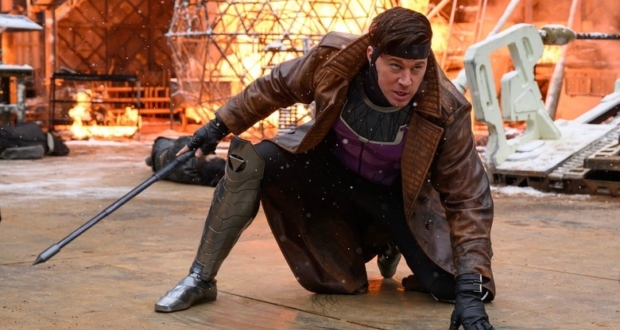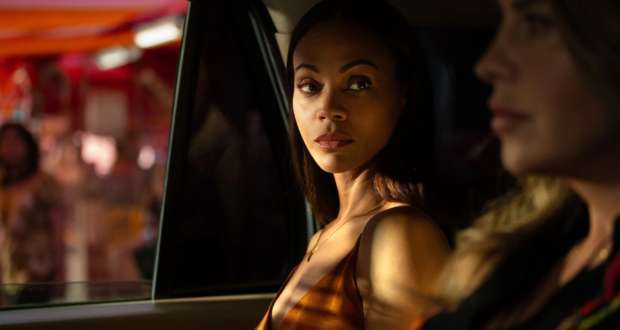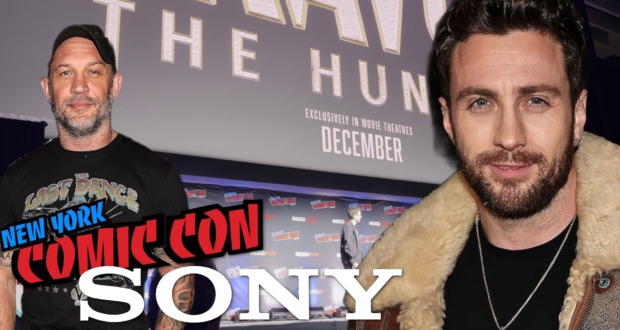Avatar: The Last Airbender is a wonderful show that has been universally loved since its premiere. Initially an animated series, the show has found a cult following in other media as well. The franchise is so revered, that there was a live-action film that was so bad, that we don’t even talk about it. Ever. But then came the Netflix series adaptation that was seemingly very faithful to the original. The live-action Avatar series on Netflix works, albeit with many caveats. While it could be the best possible adaptation they could’ve done, it was still lacking in many ways. One of those ways is the depiction of a major character. Uncle Iroh in Avatar: The Last Airbender was pretty faithful to the original, but certain choices stripped the character entirely, and the main antagonist suffered because of it.
Please note that the following will feature spoilers for all versions of Avatar: The Last Airbender.
Who Is Uncle Iroh In Avatar: The Last Airbender?
Image via Netflix.
Avatar: The Last Airbender was the story about Aang, a child chosen to be the one who will bring about peace in the world. The animated series begins with the child missing for 100 years, while the Fire Nation wages war on the world. But along with Aang, the story is also about Prince Zuko. Zuko is the dishonoured prince of the Fire Nation, banished from his world by his father, and seeking redemption by finding and destroying the Avatar; the aforementioned child. So Zuko begins the story as very much the villain. A focused, petulant but capable firebender (someone with powers to control and weaponize fire) hell-bent on the Avatar’s downfall and the restoration of his honour.
But why are we talking about Zuko when this piece is about Iroh? Well, Iroh is actually very crucial to Zuko’s story, and how the other characters, and even the audience perceive him in the series as well. When we meet Zuko’s uncle Iroh, he is a comic relief character. Constantly preoccupied with food, games, and other trivial matters, enough to seemingly not share his nephew’s zeal over their mission. Throughout the animated Avatar series, Iroh is aloof, hilarious, charming, compassionate, kind and very caring and supportive of his misguided nephew. He treated Zuko’s exile and banishment like a vacation, while Zuko foamed at the mouth at his status. Which was the entire point of the character.
How Iroh In Avatar Contrasted And Humanized Zuko
Image via Netflix.
When we first meet Zuko, he is dangerous, cruel and very much hated by audiences. Which was the intention. He was the villain, after all. But that’s why Iroh’s portrayal was so baffling, initially. How can this cute and cuddly old man, not only support this cruel boy but also seem to genuinely care about him? What did he see in Zuko that audiences had not yet? That question and hook engaged audiences in Zuko’s journey without even realizing it. In many ways, Iroh’s likeability humanized Zuko to us. We questioned the relationship and dynamic, which got us even more invested in Zuko’s journey.
The turning point comes in an episode when Iroh recalls the reasons for Zuko’s banishment to other soldiers on his ship. This scene is also in the live-action Avatar on Netflix as well. We learn that Zuko spoke out to defend the lives of these very soldiers from being cannon fodder in a battle, and was banished for questioning the wisdom of his father, the Fire Lord. This revelation made Zuko into a tragic antagonist from a villain. The story also has weight and significance, because it was the first time the jokey Uncle Iroh became serious. So audiences knew to listen.
Iroh’s Journey Mirrored Zuko’s
Image via Netflix.
As the animated series progressed, we discover Iroh’s own dark past of his own cruelty as a Fire Nation General, and the atrocities he committed during war. We learn how the brother of the vicious Fire Lord is now a centered old man, trying to find atonement by guiding his own nephew from the dark path he went down. Iroh is constantly providing nuggets of wisdom to Zuko, while still supporting and being there with him during his quest to get back to his father. In a lot of ways, Iroh is the angel on Zuko’s shoulder, his conscience that he is always struggling with, which puts him at odds with the demons on his other shoulder.
While Zuko eventually goes from villain, to anti-hero to full-fledged hero, almost all of it is due to Uncle Iroh’s subtle and consistent guidance. This all manifests in his later relationship with Aang, who is the epitome of the hero Iroh always believed Zuko could be. Iroh being a badass general and an awesome fire bender himself just adds to these dynamics even more, knowing that Iroh lived the bad guy life that Zuko begins his life as, gives credence to his attempts to save his nephew’s soul. But the live-action Avatar: The Last Airbender on Netflix completely strips Iroh of all these dynamics.
Iroh In Avatar: The Last Airbender Netflix Series Is Without Nuance
Image via Netflix.
The Iroh we see in Netflix’s Avatar: The Last Airbender is still a decent character, played wonderfully by Paul Sun-Hyung Lee. But he is without any of these nuances. The character in the Netflix version is nice, supporting and absolutely fine. There is nothing in the performance or his use in the Netflix version of the story that I have a problem with. The issue is how Zuko’s development in the live-action show suffered because Iroh was stripped of all his animated series nuances. Without Iroh being a silly and overly hilarious sidekick to Zuko’s cruel behaviour, there was no counterpoint. Audiences didn’t see a contrast between Zuko’s ambition and Iroh’s complete disregard for it. So when Iroh did get serious, it doesn’t have the same impact as the animated, because he’s shown as a stoic and detached character to begin with.
There are also far less significant moments of Iroh counselling Zuko, subtly nudging him toward the right path. The biggest thing the live-action Avatar loses through these changes to Uncle Iroh is the contrasting dynamic between the two characters. Without Iroh’s niceness to balance out Zuko’s cruelty, Zuko just comes off as a petulant child, while Iroh is the silent parent who doesn’t know how to deal with his tantrums. And Zuko’s eventual shift from villain to anti-hero has even less impact, because, where is this moral compass coming from? Without Iroh being a capable General who knows how to control, manipulate and protect his nephew from himself, Zuko’s journey just feels half-baked.
There Is Still Time To Correct Iroh In Avatar: The Last Airbender
With Netflix confirming seasons 2 and 3 of Avatar: The Last Airbender live-action series, they can still flesh out this Iroh into the more balanced one he is in the animated series. His dark backstory, his capable nature as a leader, as a guide and as a man tormented by his own past, is something they can still add-in. Especially when you consider that even the other characters and their experiences with Iroh force them to give Zuko the benefit of the doubt. Iroh’s interactions with Toph and others, force them to trust Zuko initially, simply through his association with Iroh.
For all these plot beats to hit properly in the rest of the live-action adaptation, they have to give Iroh and by extension, Lee, a lot more to do. Lee has shown his range as comic relief from his work on Kim’s Convenience, and his talent as a leader and soldier through his role in The Mandalorian shows on Disney+. The actor is the perfect live-action Iroh in look, but he needs better writing for the character, so he can perform it in the way that he is more than capable of doing.
Season 1 of Avatar: The Last Airbender live-action is now streaming on Netflix.
What did you think of Iroh in Avatar: The Last Airbender? Let me know in the comments below, or on X (formerly Twitter) at @theshahshahid.
















